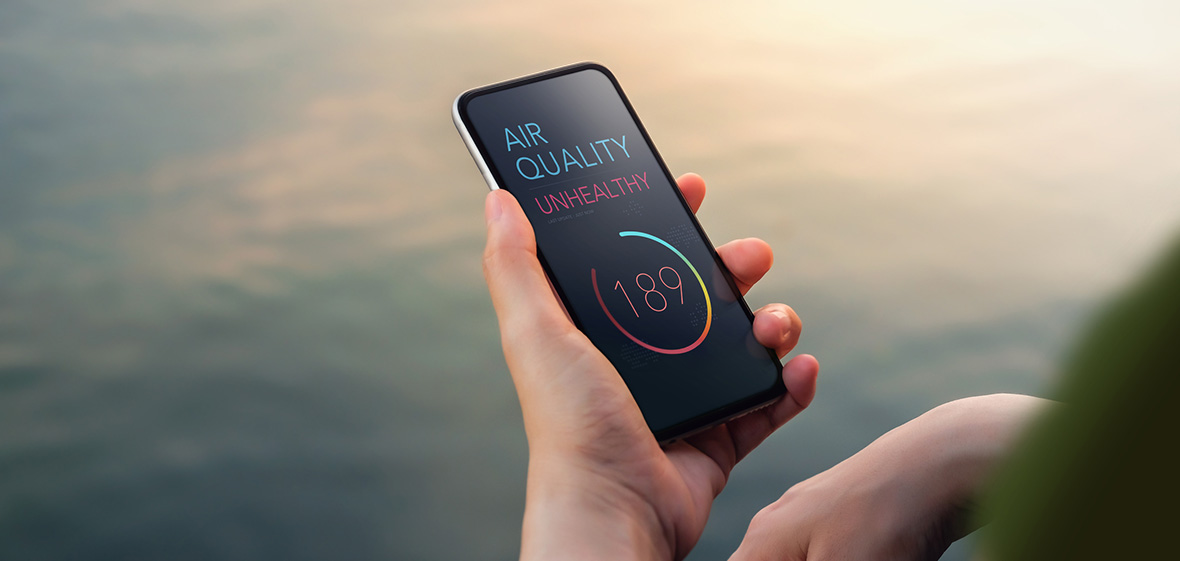
Recent wildfires in a large part of Canada have called upon health officials to discuss the current state of air quality around the U.S. and the damaging effects air pollution can have on our overall health. Also, during the summer or in hot weather, ozone levels can increase, causing more air pollution and poor air quality.
The Environmental Protection Agency (EPA) has an air quality index, or AQI, which is used for reporting daily air quality. The AQI shows you how clean or polluted the air is and the associated health effects that can be concerning if the air is polluted. If the AQI is 100 or higher, severe health conditions, such as heart attacks, asthma attacks and others, may occur in at-risk individuals.
Environmental factors like air pollution or gene-environment interactions can account for up to 80-90 percent of chronic diseases. Even low levels of air pollution over time can lead to heart disease, trigger heart attacks, asthma, or lung issues and increase the risk for diabetes and different cancers. Knowing the symptoms of heart disease is important since it isn’t only chest pain – heart attacks can cause nausea and sharp pains in the arm or back.
Children and the elderly, as well as people with asthma, COPD or other pre-existing lung or heart diseases, are especially affected by breathing in polluted air. However, even healthy people with no pre-existing medical conditions can be affected by very high levels of air pollution. If you experience medical issues, if symptoms last longer than several minutes, don’t go away with rest or, in the case of lung symptoms, aren’t relieved with your normal medications, it is vital to seek care immediately.
While there aren’t any prescription treatment options, there are various preventative measures you can take to protect yourself from being impacted by poor air quality. The best preventative measure during days with high AQIs is to limit the time you spend outside. When you are outside during high AQI days, do your best to not exercise or exert yourself.
Another precaution to protect yourself from air pollution includes wearing an N95 mask to protect your body from exposure to the particles and prevent inflammation.
It is important for the community to take precautionary measures to prevent the negative effects air pollution can cause to overall health. Individuals, though, can help prevent more damage from air pollution by decreasing their overall inflammation with healthy lifestyle choices, including eating healthy and exercising. Changing air filters in your home can also help.
The EPA provides the latest up-to-date information on air quality. Visit AirNow.gov to learn more.









